One Health Newsletter
One Health Newsletter: Volume 16, Issue 1
October 2024
The theme of this issue is the History of One Health. All of the articles highlight exciting applications of the One Health concept. This issue of the One Health Newsletter was written by professionals, postdoctoral associates and graduate/veterinary students with the assistance of our faculty editorial board and guest contributors.
Micro-Editorial: The History of One Health
Written by Riyam Hasan, M.S., and Ellyn R. Mulcahy, Ph.D., MPH
A thematic overview and introduction to this edition of the One Health Newsletter.
Unveiling the One Health Paradigm: Exploring its Roots in the Chicago Stockyards
Written by Antoinette Lona, M.S.

The Chicago Stockyards, emblematic of industrialization's impact on public health, were pivotal in shaping the One Health paradigm, which emphasizes the interconnectedness of human, animal, and environmental health. Characterized by poor working conditions and frequent disease outbreaks among workers and livestock, these conditions underscored the need for integrated health approaches. Upton Sinclair's novel, The Jungle, further illuminated these issues, raising public awareness and catalyzing regulatory reforms. Sinclair's exposé not only exposed the harsh realities of the stockyards but also underscored the interdependencies between human health, animal welfare, and environmental sustainability—fundamental principles of the One Health framework.
Using NASA Satellite Data to Examine Environmental Health Risks
Written by Shay Nair Sharma
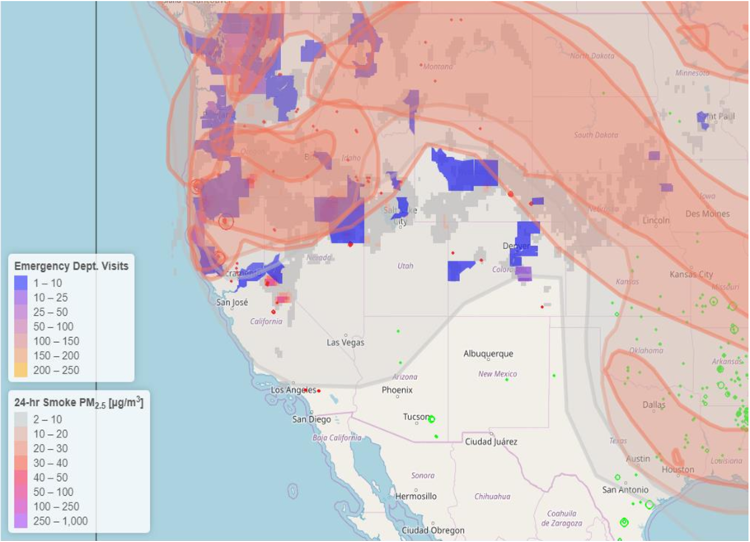
The National Aeronautics and Space Administration (NASA), an independent agency of the U.S. federal government responsible for the civil space program, aeronautics research, and space research, employs Earth-observing satellites that collect temporal and spatial information about dynamic environmental parameters. This article highlights three environmental health challenges – algal blooms, vector-borne diseases, and wildfires – and information from satellite data can play an integral role in forecasting health risks and enhancing our understanding of how changing ecosystems affect public health.
Shellfish Trade Concerns of the United States and the European Union: Determination of Equivalence in Sanitary and Phytosanitary Measures
Written by Toni Rose M. Barroga, D.V.M., MPH
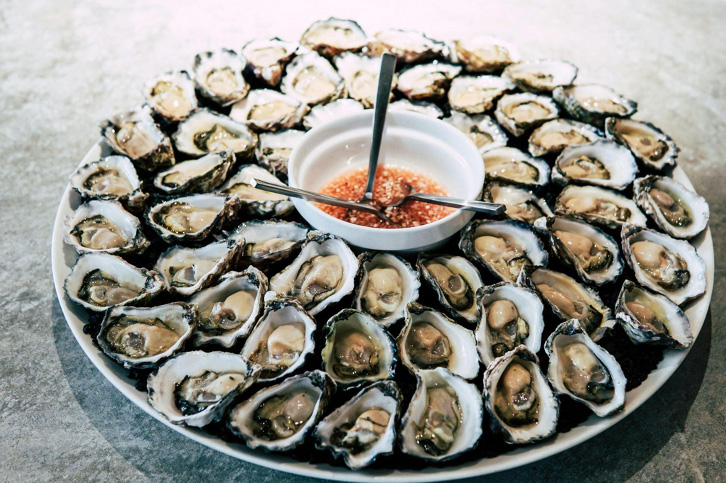
Seafood is becoming one of the healthier food choices because of its high nutritional components. Globally, the consumption of seafood products has increased more than twice (to about 20.5 kg per capita) over the past 50 years. However, despite the associated health benefits, seafood is also linked to numerous food-borne illnesses. This article highlights the process undertaken by the European Union and the U.S. to establish equivalence on the determination of shellfish safety despite having two different sets of standards.
Addressing the Challenges of Hunger and Malnutrition in a Low-Income Country: Insights and Perspectives from Mali
Written by Abdoulaye Ouologuem, M.D.
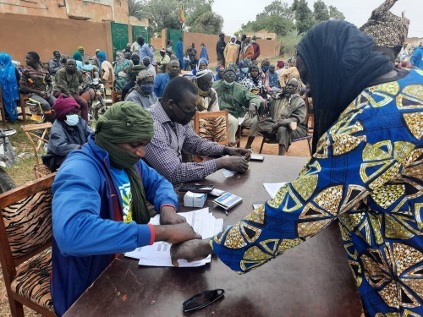
Malnutrition remains a major global public health issue affecting developing countries, particularly in Asia and sub-Saharan Africa. Malnutrition is a critical risk factor for illness and death, particularly in pregnant women and children in their first 1000 days of life, with a long-term effect on the child’s overall development. Mali is a landlocked country in West Africa with a population of 23,293,698 in 2023. While Mali has one of the highest population growth rates in the world, malnutrition is a public health issue in the country, specifically among vulnerable groups including children under the age of five, pregnant and breast-feeding women, and persons over age 65.
Contributing Authors and Editor
|
Riyam S. Hasan, M.S. Riyam earned her degree in Veterinary Medicine from Babylon University, Iraq, followed by a master’s in Animal Physiology with an emphasis on neurotransmitters. She is currently pursuing a master's in Public Health, focusing on Infectious Diseases and Zoonosis at Kansas State University. With a strong passion for public health, Riyam is dedicated to advancing knowledge in infectious disease management, biosecurity, and biodefense. Affiliation: Kansas State University's Master of Public Health program |
|
Antoinette Lona, M.S. Antoinette, a proud alumna of Kansas State University, earned her B.Sc. in Animal Science in 2016, and her M.Sc. in Veterinary Biomedical Science in 2021. Antoinette is currently a dedicated professional at the Kansas State Veterinary Diagnostic Laboratory, specializing in Histopathology and Immunohistochemistry. Antoinette's research is distinguished by its focus on the pathology of infectious diseases, particularly within historical contexts. Affiliation: Kansas State University's College of Veterinary Medicine |
|
Shay Nair Sharma Shay Nair Sharma is a senior at Stanford University studying Human Biology with a concentration in Space Medicine. Since high school, he has been a passionate advocate for skin cancer awareness, developing educational resources adopted by the Elk Grove Unified School District and spearheading curriculum revisions that reformed California's Health Framework for Public Schools. As a former intern with the NASA Health and Air Quality Applications Program, Shay helped explore policy applications of the NASA Research Opportunities in Space and Earth Sciences (ROSES) 2013 projects and helped craft a strategic engagement plan for schools of public health. At Stanford, he leads the Space Initiative Biology Team and collaborates with medical students and faculty to integrate climate health into the medical curriculum. Shay is dedicated to empowering the One Health community by providing actionable steps to maximize the use of NASA's Earth observation data for public health decision-making. Affiliation: Stanford University's Biology program |
|
Toni Rose M. Barroga, D.V.M., MPH Toni served in various positions in government and non-government organizations and provided technical support in formulating animal health-related policies and trade-related technical reports at the national level in the Philippines. For the past eight years, she has been heavily involved in the implementation of various animal health programs such as Rabies, Antimicrobial Resistance, and African Swine Fever, among others, and worked with multiple sets of stakeholders. She recently finished her Master of Public Health degree at Kansas State University through a Fulbright Scholarship, where she worked on using network analysis to map the swine movement in their country. Affiliation: Philippines' National Veterinary Services' Department of Agriculture – Bureau of Animal Industry |
|
Abdoulaye Ouologuem, M.D. Abdoulaye is a medical doctor currently a Fulbright scholar and a Master’s student in Public Health Nutrition at K-State. Before K-State, he had worked with some national and international non-governmental organizations (NGOs) on vaccination, malaria, and nutrition in his country. Abdoulaye also worked at the Food and Agriculture Organization of the United Nations (FAO) and the World Food Program (WFP) on several nutrition programs. He briefly served as the Deputy Development Counselor at the British embassy in his country before joining K-State. Affiliation: Kansas State University's Master of Public Health program |
Faculty Editorial Board
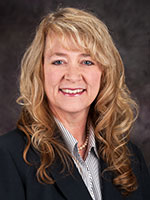 |
Paige Adams, Ph.D., D.V.M. |
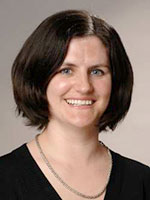 |
Ellyn Mulcahy, Ph.D., MPH |
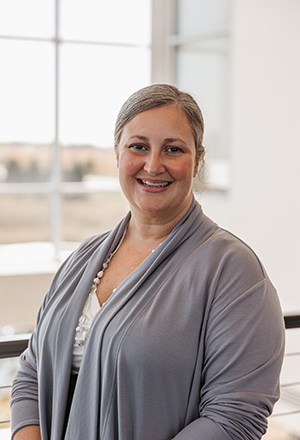 |
Margaret Kincaid, Ph.D. |
 |
Jean-Paul Gonzalez, Ph.D. |
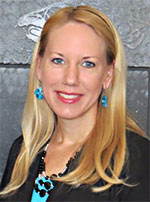 |
Helena Chapman, Ph.D., M.D., MPH |